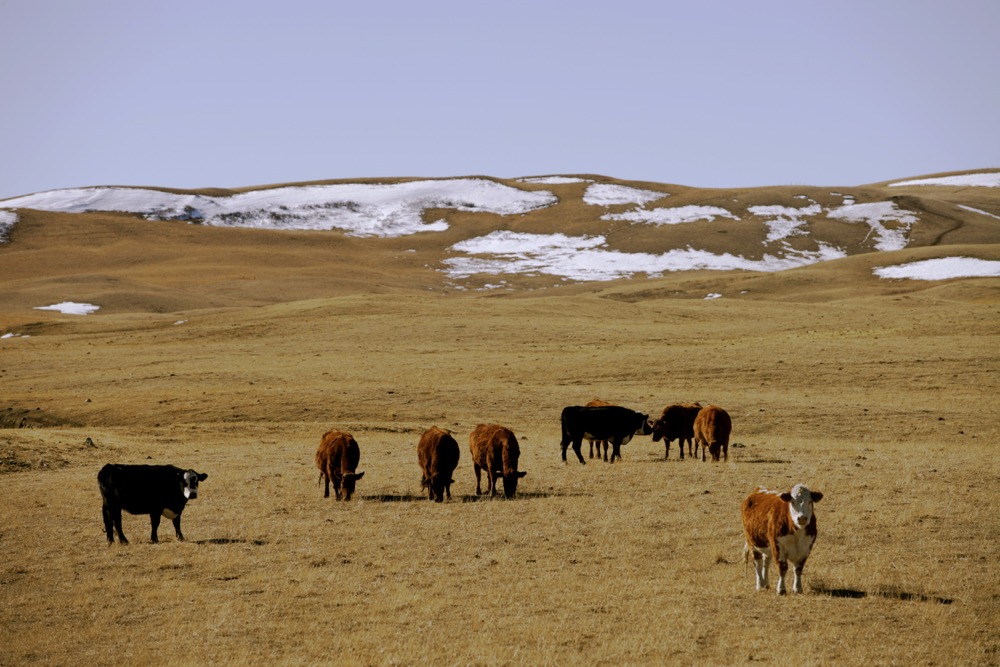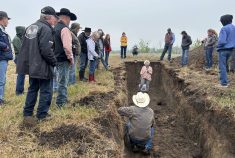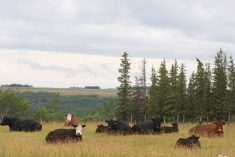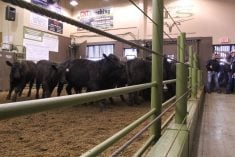Last month, I touched on the opportunity to flip discussions around methane and the beef industry into a positive. However, it occurred to me afterward that some readers might have walked away with the impression that I have no qualms about the potential effect of government regulations and policy around methane on the beef industry.
Rest assured, I have many qualms. I won’t outline them in detail, but basically, my big worry is that it will be like handing over your vehicle to someone who doesn’t know the area, has never driven on gravel roads and will only take directions from Apple or Google maps. You may or may not get there on time, in one piece, or at all. Plus, it may cost you triple what it should have due to all the wrong turns.
Read Also
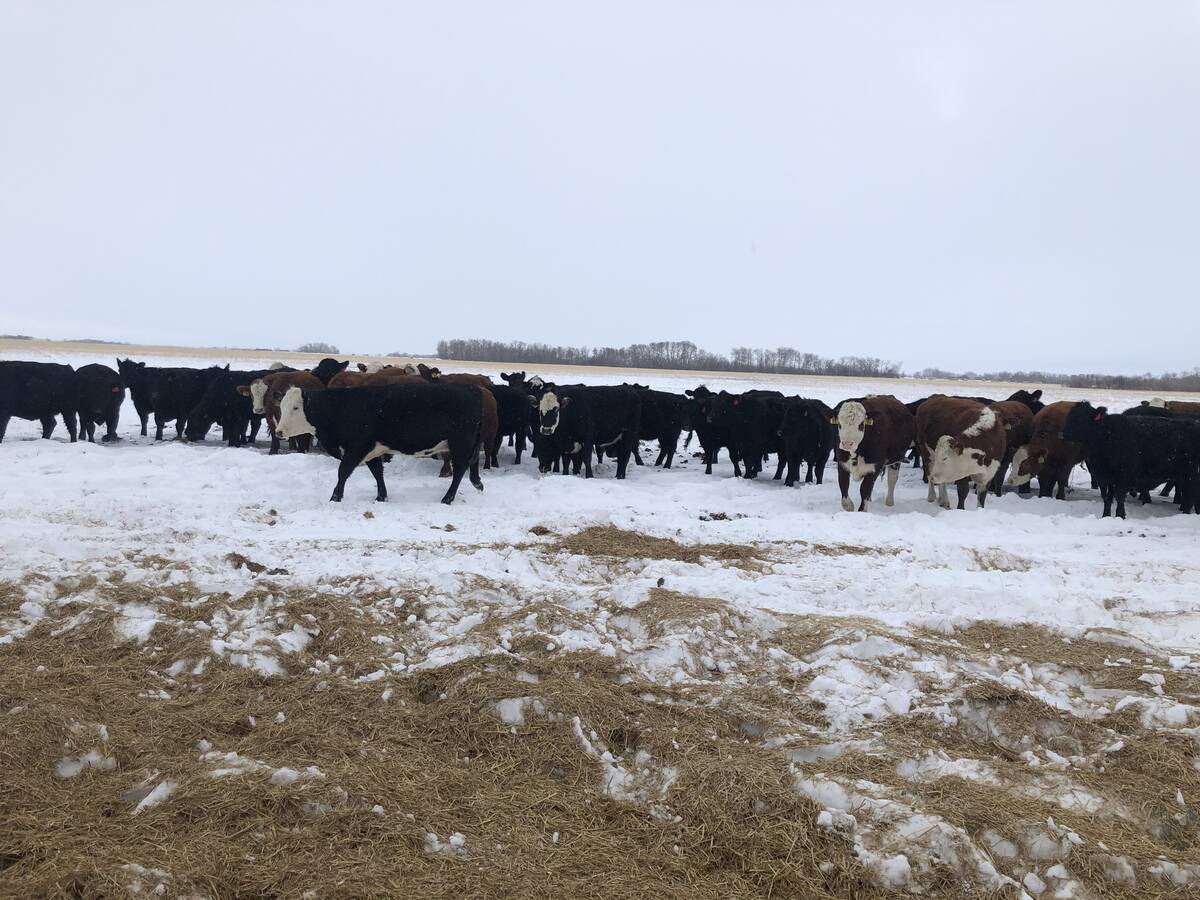
Picking the most efficient cows to rebuild your cow herd
A new cow ranking system to help beef farmers and ranchers pick the most efficient cows as they rebuild their herds.
That’s not a knock against the federal Liberals (although with the new round of ag programs and funding being negotiated, I hope the feds are in a listening frame of mind). Nor is this a made-in-Canada issue, something that became clear while watching the “Agriculture’s Ambition” panel at the United Nations Climate Change Conference recently held in Glasgow (COP26), via YouTube.
“It’s a must for us to be at the table, as farmers. We have no doubt, because we are the solution, and there’s nothing that can happen without the farmers,” said Elizabeth Nsimadala, president of East Africa Farmers Federation.
Nsimadala’s opening remarks included points many Canadian farmers and ranchers could likely relate to, such as the need for innovative solutions tailor-made to agriculture, the need to embrace innovative technology and to be able to access the financing to do so and the need for mutual partnerships to be based on equity, with balanced power.
Also on that panel was the Canadian Cattlemen’s Association’s Fawn Jackson, who echoed Nsimadala’s comments around research and tech transfer (including long-term funding) and the need for a community focused on these solutions. Agriculture is a system, so if we only bring one perspective, “we’re not going to get the solution right,” Jackson said.
At the table, we need not only farmers and ranchers, but also conservation organizations, supply chain stakeholders and government, she added. She pointed to the Canadian Roundtable for Sustainable Beef as one example of this community of stakeholders.
“And I can tell you at the start, it’s not comfortable. But once you get those conversations really going, you can see just how far you can really go with all of those different stakeholders at the table.”
There’s a lot of buzz around market solutions such as carbon taxes and carbon markets, Jackson noted. But we need to make sure farmers and ranchers will be able to implement major solutions, in an economically viable manner, she said.
“We know we need farmers. How can we make sure they that they can economically survive as we ask them to do more and more?”
That is the gazillion-dollar question, as far as I’m concerned. The last thing ranchers and beef farmers need is a set of regulations that nibble at an operation’s financial sustainability, or even take a lot of time to manage without assuring significant production or financial benefits. If caring about ranching families isn’t enough motivation, investors and policy-makers need to remember that Canadian ranchers currently steward 40 million acres of native grasslands (never mind other tame forages that sequester carbon, or even those operating responsibly in and around forests). We don’t want to lose more of that land to the plow, nor acreages, subdivisions, or recreational properties. Even turning more of it into parks is problematic socio-economically, in my opinion (not to mention raises the question of who will manage grazing, which is vital to those ecosystems). But I digress.
Jackson noted that with carbon markets, we need to make sure it doesn’t push agricultural production out of Canada (or out of any country), into other parts of the world — instead, we need to support farmers both locally and globally.
Minette Batters, representing the National Farmers’ Union of England and Wales, said the elephant in the room is that no one has built the economic model to do this. There are “trillions” circulating in green finance above our heads, she said.
“These monies have to hit the ground if we are going to do what is needed. And this has to be a bottom-up approach, whether it is on carbon, whether it is on biodiversity or whether it is on water quality.”
Chris Buss, with the International Union for Conservation, offered a slightly different perspective, as someone who provides support to farm organizations on conservation efforts. Global initiatives such as AIM for Climate, are “opportunities for big financing into agriculture as a climate change strategy,” he said.
As recently as 2019, farmers weren’t at the table at the global level, so we’re starting to see change, he noted. “There is a voice there, and it’s to maximize that, to think of rather than being a threat, it is an opportunity.”
Still, although farming and nature-based solutions are seen as 30 per cent of the climate change solution, only an estimated three to seven per cent of the financing is directed to that sector, said Buss. You could argue the financing “is there, but it’s just wrongly directed,” he said.
Jackson cited Species at Risk Partnerships on Agricultural Lands (SARPAL) as a successful example of the conservation community teaming up with producers. She pointed out that ranchers already have a lot on their plates (marketing, animal health, agronomy, etc.), so managing for specific species becomes very difficult. The SARPAL funding allowed them to work with biologists, riparian specialists and all kinds of other experts to inventory and enhance the resources they already had on their land and provided funding to make it work.
Given all the talk around investments at COP26, Jackson expects to see more investments in these types of partnerships. “Money is coming and we have to find partners to be able to deliver practical solutions.”
Nsimadala concluded that we need leaders who can convene everyone, so we can all bring our expertise to the table and “move together.”
“Because if you’re not ready to work together, we will suffer together and we will fall together. So it’s better we start now. The time is now.”


